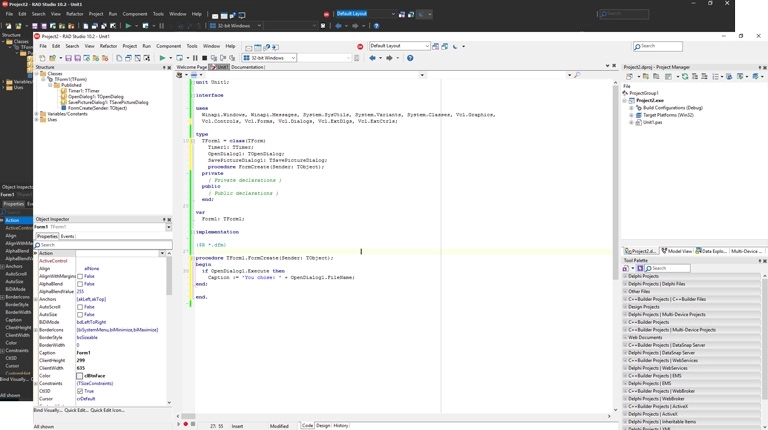In the current age, the world runs on code. From websites to mobile apps, software developers are the unseen architects shaping our technological landscape. Within this realm, open source software (OSS) plays a vital role, collaboratively built and freely available. However, the nature of OSS development presents unique challenges that can significantly impact the mental well-being of these developers.
This article delves into the current state of mental health among software developers, with a particular emphasis on the pressures and potential pitfalls faced by those contributing to open source projects. By understanding these challenges, we can work towards fostering a more supportive environment, ensuring the well-being of coders and the continued success of the open source movement.
Between Then and Now
The original intent of open source was making the source code of software programs and platforms accessible by all. That is, individuals are invited to update the code with the purpose of improving the software for the benefit of all users.
Between then and now, things have changed whereby it can be difficult to contribute to open source projects due to aggressive communications and complex codebases. The author argues that open source should focus on empathy and collaboration again
The Contrasting Realities of Open Source
Open source software offers numerous advantages, fostering innovation, enabling rapid development, and keeping costs down. However, the very aspects that make OSS successful can also contribute to mental health issues for developers.
One significant challenge is the skill mismatch that often occurs when companies task developers with incorporating open source projects that may not necessarily align with their skillset. As Rob Mensching, a software developer, and open source contributor, notes, this mismatch can lead to frustration for both the developer struggling with unfamiliar code and the maintainer reviewing potentially flawed contributions.
Additionally, the pressure to perform can take a toll on developers contributing to popular open source projects. With the larger community scrutinizing their work, many feel immense anxiety and fear of making mistakes, as highlighted by Vadim Kravcenko, a software engineer and mental health advocate.
Furthermore, a defining feature of open source is its reliance on volunteer contributions. While developers gain experience and recognition, the vast majority of maintainers dedicate significant personal time to keeping projects afloat. As Antfu points out, this uncompensated labor can lead to burnout, especially if not balanced with other aspects of life.
Challenges for Developers
The mental health challenges faced by software developers extend beyond the realm of open source. The industry itself is fast-paced and demanding, constantly bombarding developers with new technologies, tight deadlines, and the pressure to deliver flawless code.
Social isolation, loneliness, anxiety and depression are major issues for developers. A cursory glance at posts on Reddit talk to the these matters and the effects of spending long hours coding. The advent of remote work can lead to a lack of work-life balance and limited social interaction, which can exacerbate mental health issues.
Imposter syndrome, the feeling of inadequacy despite demonstrable skills, is also prevalent in the developer community, leading to anxiety and self-doubt. As one anonymous developer shared, “No matter how much I accomplish, I can’t shake the fear that I’m not good enough.”
Moreover, the constant pressure to perform can contribute to burnout, characterized by emotional exhaustion, cynicism, and a reduced sense of accomplishment. This can have severe consequences for both the individual’s well-being and the quality of their work.
Support for Developers
Fortunately, there are steps that can be taken to create a more supportive environment for software developers, both within and outside the open source realm.
Open source adoption can benefit businesses of all sizes – larger companies can invest in training programs to empower developers, while smaller businesses can leverage managed open-source services or well-documented libraries. Both large and small businesses should prioritize fostering a collaborative environment where developers can share knowledge and overcome challenges together. This can be achieved through internal knowledge-sharing sessions or company-backed documentation platforms.
Raising awareness about mental health issues in the tech industry and normalizing seeking help is crucial. As SurveyPoint.ai emphasizes, companies can provide resources like access to therapy or Employee Assistance Programs (EAPs) to support their employees’ mental well-being.
Within open source communities, creating a culture of appreciation for contributors can go a long way. Acknowledging their efforts and providing positive reinforcement can alleviate the pressure and anxiety that often accompany contributing to these projects.
Finally, promoting sustainable practices, such as encouraging healthy work-life balance and setting realistic deadlines, can prevent burnout among both employed and volunteer developers.
Establishing clear contribution guidelines and expectations can also help alleviate stress for developers approaching open source projects. As Mensching suggests, well-defined processes can streamline interactions and reduce potential conflicts or misunderstandings.
Final Thoughts
The mental health of software developers is paramount to the continued success of the entire tech industry, especially in the open source domain. By acknowledging the challenges they face and implementing supportive measures, we can ensure a thriving developer community that is both creative and well-balanced.
And regardless of your role, it’s essential to prioritize self-care and seek help when needed – healthy developers write healthy code, and a healthy codebase is the foundation for a healthy digital world.
Remember, addressing mental health issues in the software development industry is not just a matter of individual well-being; it’s a collective responsibility that will shape the future of technology and the world we live in.
References
- “Open Source and Mental Health: The Biggest Challenges Facing Developers.” Information Age, https://www.information-age.com/open-source-mental-health-biggest-challenges-facing-developers-19370/.
- Dignan, Larry. “5 Ways to Improve Mental Health for Software Developers.” TechCrunch, 11 Nov. 2021, https://techcrunch.com/2021/11/11/5-ways-to-improve-mental-health-for-software-developers/.
- “Access to Mental Health Support in the Digital Age.” SurveyPoint.ai, 9 Nov. 2023, https://surveypoint.ai/blog/2023/11/09/access-to-mental-health-support-in-the-digital-age/.
- Kravcenko, Vadim. “Mental Health in Software Engineering.” Vadim Kravcenko, https://vadimkravcenko.com/shorts/mental-health-in-software-engineering/.
- Antfu. “Mental Health in OSS.” Antfu’s Blog, 14 Aug. 2022, https://antfu.me/posts/mental-health-oss.
- Mensching, Rob. “A Microcosm of the Interactions in Open Source Projects.” Rob Mensching’s Blog, 30 Mar. 2024, https://robmensching.com/blog/posts/2024/03/30/a-microcosm-of-the-interactions-in-open-source-projects/.
- “Open Source.” Investopedia, https://www.investopedia.com/terms/o/open-source.asp#:~:text=feedback%20and%20improvements.-,The%20Bottom%20Line,accessible%20by%20only%20its%20creator.
- Heilmann, Christian. “A Worrying Change in Open Source Perception.” Christian Heilmann’s Blog, 11 July 2019, https://christianheilmann.com/2019/07/11/a-worrying-change-in-open-source-perception/.





Leave a comment